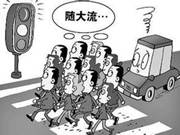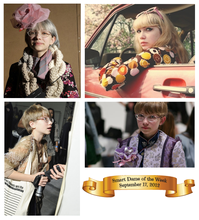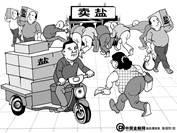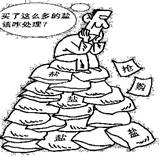题目内容
Money, jewels and important documents may not be the only valuables placed in banks these days. Some mothers store their breast milk (母乳) in banks.
There are ten breast milk banks across the United States, where mothers can donate their extra milk for other women’s babies.
Experts say breast milk is the best food for babies. The World Health Organization says it is the only food babies should get during the first six months of life, in most cases. Breast milk is especially important for babies born too early. Sometimes these premature babies must stay in the hospital for many weeks.
James Cameron is a doctor who treats newborns at Lutheran Children’s Hospital in Fort Wayne, Indiana. He says breast milk is almost like medicine. Doctor James Cameron says, “The fact is that there are so many different proteins and specialized sugars in the breast milk that the mom’s able to make that help provide immunity (免疫力). It’s very important for the health of the newborn.”
Lucy Baur lives near Fort Wayne. She breastfed both her children and always had more milk than they needed. She wanted to donate to the Indiana Mothers Milk Bank in Indianapolis. But freezing and shipping milk can be costly. Then, a donor station opened near her home.
Milk donations in the United States work like this. Donors must be willing to provide almost three liters of breast milk. They freeze the milk and take it to the station. There, employees warm the milk and mix it with other mothers’ milk. Then, the milk is heated to kill bacteria. After that, the technicians test samples of all the milk to make sure it is safe and healthful. The milk is re-frozen and sent to the main milk bank. The milk bank transports the milk to hospitals to feed premature or sick babies.
Donors are tested for diseases before any milk is accepted. They are not permitted to smoke tobacco, use illegal drugs or drink too much alcohol.
【小题1】According to the passage, which thing can also be stored in banks except money, jewels and important documents?
| A.Notes. | B.Diamonds. |
| C.Valuable papers. | D.Breast milk. |
| A.Lucy Baur wanted to donate her milk to the donor station near her home |
| B.the milk is frozen and sent to the milk station after killing bacteria |
| C.the milk bank transports the milk to babies’ home to feed them |
| D.James Cameron is a doctor who feeds the babies on the milk in the milk station |
| A.only it can stop babies from developing diseases |
| B.it contains rich nutrients (营养) babies need |
| C.it is the only food suitable for babies |
| D.it benefits babies as the best medicine |
| A.A heavy smoker. | B.A heavy drinker. |
| C.A fruit lover. | D.A drug user. |
| A.store extra fresh milk for some school children |
| B.provide milk to the children who go hungry |
| C.help other mothers donate milk to their own babies |
| D.offer breast milk to early born and unhealthy babies |
【小题1】D
【小题2】A
【小题3】D
【小题4】C
【小题5】D
解析试题分析:本文讲述现在好多妈妈将自己的母乳捐献给母乳银行储存。工作人员将这些捐赠的母乳经过杀菌处理后,送给早产和生病的婴儿饮用。
【小题1】细节理解题。根据文章第一段最后一句话Some mothers store their breast milk (母乳) in banks.“一些妈妈把他们的母乳存入银行。”可知,除了钱和珠宝还可以存入母乳。故选D。
【小题2】细节理解题。根据第五段第二行She wanted to donate to the Indiana Mothers Milk Bank in Indianapolis.“她想要将自己的母乳捐献给在印第安纳波利斯的印第安母乳银行。”和本段最后一行Then, a donor station opened near her home.“然后,她家附近的一家捐献站向她开放。”可知A正确;根据第六段第二行They freeze the milk and take it to the station. There, employees warm the milk and mix it with other mothers’ milk. Then, the milk is heated to kill bacteria.“他们冰冻牛奶并带到奶站。在那,工作人员将奶解冻再和其他母亲的奶混合。然后,牛奶被加热杀菌。”可知B错误;根据第六段最后一行. The milk bank transports the milk to hospitals to feed premature or sick babies.“牛奶银行将牛奶运输到医院喂给早产或是生病的婴儿。”可知C错误;根据第四段第一行James Cameron is a doctor who treats newborns at Lutheran Children’s Hospital in Fort Wayne, Indiana.“James Cameron是一个在印第安纳韦恩堡的一家路德儿童医院治疗新生儿的医生。”故D错误。故选A。
【小题3】细节理解题根据第四段最后三行He says breast milk is almost like medicine. The fact is that there are so many different proteins and specialized sugars in the breast milk that the mom’s able to make that help provide immunity (免疫力). It’s very important for the health of the newborn.“他说母乳就像是药品。事实是母乳里有许多不同的蛋白质和特殊的糖分可以提高免疫力。对新生儿的健康非常重要。”故选D。
【小题4】细节理解题。文章最后一句They are not permitted to smoke tobacco, use illegal drugs or drink too much alcohol.“他们不允许吸烟,吸毒和过度饮酒的。”故选C。
【小题5】细节理解题。根据第六段最后一句The milk bank transports the milk to hospitals to feed premature or sick babies.“牛奶银行将这些奶送到医院给早产和生病的婴儿喝。”故选D。
考点:社会现象类短文阅读。

Teens want structure in their lives, which means they want their lives well-planned. To begin building structure, teens need love and trust. They need to know their parents arc there to give them needed love and support (支持).Teens want to be sure that nothing can prevent parents from shouldering their responsibility for them — not their growing maturity (成熟),misbehavior, nor anger at something they have done. Teens want parents to keep control while allowing them to make some decisions.
There are some ways you can help your teens create reasonable structure and remain close. One way is to spend time together. Parents often mistake their teens’ increased interest in friends for a disinterest in the family.
Teens would like to spend more time doing things with their parents, but watching TV is not counted as spending time together. As your teens mature, it is important for you and your teens spend time alone together, one to one. Your teens need time to talk to you alone without any other family member present.
Talk with your teens about their interests and concerns. Make sure you really show interest in what is happening. When talking with your teens, give full attention and do not stop them.
The way to help your teens become adults is to let your teens into your world. Sharing your emotions and concerns with your teens is important. Avoid causing needless worry.
Trust your teens. Don't expect the worst. Hope for the best. Telling your teens you don’t like their friends will cause the teens not to bring their friends home. If something should go wrong, believe that your teens didn’t do it on purpose.
It is very important that you treat your teens with respect. Teens need the same respect adults show for total strangers. Don’t talk down to your teens.
You need to be supportive o f your teens. What may be a small problem to you may be troubling to your teens. Teens don't have the experiences that adults have had. Let the teens know that you understand how much it hurts when something happens that is upsetting or hurtful to them. As they mature, they can look back at some problems they had and laugh at having been upset by something that now seems unimportant.
The most important things to remember are: talk with your teens, listen to their worries and offer suggestions when needed. This will help your teens to live a well-organized life.
【小题1】According to Paragraph 1, teens ______________.
| A.can control themselves. |
| B.expect direction and freedom. |
| C.don’t know how to make decision |
| D.don’t have responsibility for the family |
| A.compared with | B.used as |
| C.connected with | D.regarded as |
| A.invite their teens’ friends home. |
| B.leave their teens’ problems alone. |
| C.share their feelings with their teens. |
| D.pay little attention to their teens’ daily lives. |
| A.Training Teens to Become Responsible Adults. |
| B.Helping Teens to Build Reasonable Structure. |
| C.Improving the Relationship with Your Teens. |
| D.Stepping into Your Teens’ Secret Word. |
"Chinese style road crossing" is a hot topic in China. Many cities have started to punish these jaywalkers.
"Chinese style road crossing" means that you cross roads with lots of people and you don't think about traffic lights at all.
Beijing government announced that people who do not wait for the green light to cross the road will receive a fine of 10 yuan. What’s more, using the diagonal to cross the road is also against the rules. Walkers should walk in an "L" shape. Besides Beijing, many places have also taken steps to stop "Chinese style road crossing". Provinces such as Sichuan, Shanxi and Zhejiang have already started to fine jaywalkers 5 to 50 yuan since last year. This punishment can call on people to realize the importance of traffic safety. However, many people complain that the red lights last too long. "Everyone should follow the rules, or the country will lose its order," said People Daily.
Some cities have also paid attention to the problem. For example, Beijing government said it should not only punish these jaywalkers, but also improve road safety facilities, such as properly fixing traffic lights and building overpasses*. Anyhow safety must come first.
【小题1】How many places have already started to fine jaywalkers?
| A.3 | B.4 | C.5 | D.6 |
| A.green lights | B.yellow lights |
| C.red lights | D.traffic lights |
| A.Beijing has taken steps to stop "Chinese style road crossing". |
| B.Walkers should use the diagonal to cross the road. |
| C.Zhejiang hasn't started to fine jaywalkers yet, |
| D.In Beijing jaywalkers will receive a fine of 50 yuan. |
| A.The traffic lights | B.Safety comes first |
| C.An "L" shape | D.Traffic rules |
Millions of British people have ditched the traditional “thank you” and took the place of it with the less formal “cheers”, according to a survey.
Although the common person will say “thank you” nearly 5,000 times a year, one in three are more likely to add a “cheers” or “ta” where it’s needed to show they are fashionable.
One in twenty now say “nice one” instead, while the younger are more likely to offer a “cool” than a “thank you”.
“Merci”, “fab” and even “gracias” were also listed as common phrases to use, as “much appreciated(感激)”.
One in twenty who took part in the survey of 2,000 people by the Food Network UK for Thank You Day, which is marked on November 24, 2011, said a formal “thank you” was now not often needed in everyday conversation. More than one in ten adults said they regularly won’t say thank you if they are in a bad mood. Most people stated that saying thank you was something that their parents trained them. A huge 70 percent of those questioned will say thank you to a person’s face without even meaning it, while one fifth avoid(避免)saying it when they know they should.
It seems our friends and family get the stress of our bad manners. Half of them admit (承认) they’re not good at thanking those closest to them. Many of them explain that they don’t say thank you because their family “already know I’m grateful”.
When spoken words won’t do, it falls to a nice text to do the job for most people.
One third will still send a handwritten thank-you note---but 45 percent admit it’s been more than six months since they tried to send one.
A quarter of British people say “thank you” with food, with 23 percent cooking a meal to show their appreciation to someone. Another 15 percent bake a cake.
It follows that 85 percent of people will be angry because of not getting the gratitude (感激)
they feel they should receive.
【小题1】Most of the people who took part in the survey say that they say “thank you” _______.
| A.when they are in good mood | B.completely out of habit |
| C.when they feel truly grateful | D.purely out of politeness |
| A.gave up | B.used | C.shared | D.knew |
| A.different ways of expressing gratitude are all fashionable |
| B.people should avoid saying “thank you” nowadays |
| C.a thank-you note is still appreciated by most people |
| D.people in a bad mood never say “thank you” |
| A.Most people express their gratitude to others by buying food for them. |
| B.About fifty percent of people try not to say thank you when they should. |
| C.Most people may feel natural when they fail to receive others’ gratitude. |
| D.Many people think it unnecessary to say thanks to their family members. |
What is the hottest English word of 2013? It’s “selfie”, according to Oxford dictionaries. Selfie is a photo that one takes of oneself, according to the Oxford online dictionary. People usually take selfies with a smartphone(智能手机) and send them to a social media website.
The word was first used in 2002. In the past 12 months, its frequency (出现频率) in the English language has increased by 17,000 percent, said Oxford dictionaries. Now, almost everybody knows it.
“Almost every day, I take a photo of myself at school, and save it in my Qzone (QQ空间),” said Huang Xu, 13, from Hunan. These photos record her happy and sad moments.
Pop stars also take a lot of selfies. Li Chunping, 14, from Harbin, is a big fan of Yang Mi. “She has used many selfies to tell us what’s going on in her personal life,” said Li.
What makes people love selfies? Some people say it’s narcissism (自恋). “The rise of the selfie is a perfect symbol for our narcissistic culture. We’re crying out: Look at me!” said US psychiatrist(精神科医生) Carole Lieberman.
Young people are using selfies to make friends online, Jonathan Freedland wrote in The Guardian. “The usual purpose of taking a selfie is to share online. They express a human need to connect with others,” wrote Freedland.
Huang Xu agrees with that. “During summer vacation, my classmates and I shared many selfies online. Hair or clothes were not our interests. Through these photos, we got to know each other’s holidays and feelings,” said Huang Xu.
【小题1】According to the story, a “selfie” is _____.
| A.a person with a smartphone | B.a smartphone which can take photos |
| C.a photo taken by oneself | D.an English dictionary |
| A.More than ten years ago | B.In 2013 |
| C.When smartphones appeared | D.Nobody knows |
| A.only famous people enjoy taking selfies |
| B.all people love selfies because of narcissism |
| C.people love to share selfies online |
| D.US psychiatrist Carole Lieberman hates selfies |
| A.Paragraph 4 | B.Paragraph 5 | C.Paragraph 6 | D.Paragraph 7 |
| A.Selfies and narcissism | B.Selfies and sharing |
| C.Selfies and smartphones | D.Selfies, the hottest word in 2013 |
Did you know that a new weblog is being created each second? Many of these bloggers are teenagers. While their parents wrote in a diary to express their emotions, or shared their interests by spending time with friends, teens are now using blogs instead. In fact, in the US, one in every five school-aged teens has a blog. Most of these are just chatter, some are funny or clever, but a few have become Internet success.
For example, Chloe Spencer’s blog ‘Neopets Fanatic’ gets around 300,000 hits per month. When Chloe was 15, she started the blog out of her strong liking for Neopets, a kind of pet website. One reason her blog has so many visitors is because she gives instructions and tips for the popular pet site.
Then there is Tavi Gevinson’s blog ‘Style Rookie’. It is said to get 1.5 million hits per month. Tavi, who started her blog when she was just 12, puts up her photos of her own clothes online as well as designers’ collections. Tavi’s blog has caught on because she knows a lot about style for someone so young, and she is not afraid to try out unusual clothes or see things in a different way.
Blogs like these are interesting, but they only become really popular after better-known websites link to them or they get noticed by the media(传媒). For example, Tavi’s blog became an overnight(一夜之间) success after being written about in The New York Times. Popular blogs can even earn money, usually from advertisements that companies pay to put up on the bloggers’ sites.
So for some, blogging is just a recreation(消遣), but for others, it can become a source of income and even a full-time job!
【小题1】 Teens nowadays ________ than their parents did.
| A.have more ways of communication |
| B.share their feelings more |
| C.write in diaries more often |
| D.make more friends |
| A.funny | B.clever | C.serious | D.unimportant |
| A.pet lovers | B.teenage bloggers |
| C.interested in fashion | D.keen on taking photos |
| A.visits many websites | B.loves pets |
| C.is easy to get angry | D.rarely gives opinions |
| A.is not well-known yet |
| B.is written every night |
| C.became popular very quickly |
| D.got a lot of money from advertising |
| A.How to be good teen bloggers |
| B.How teen bloggers attract the media |
| C.Keeping diaries or writing blogs |
| D.Teen bloggers mean business |


